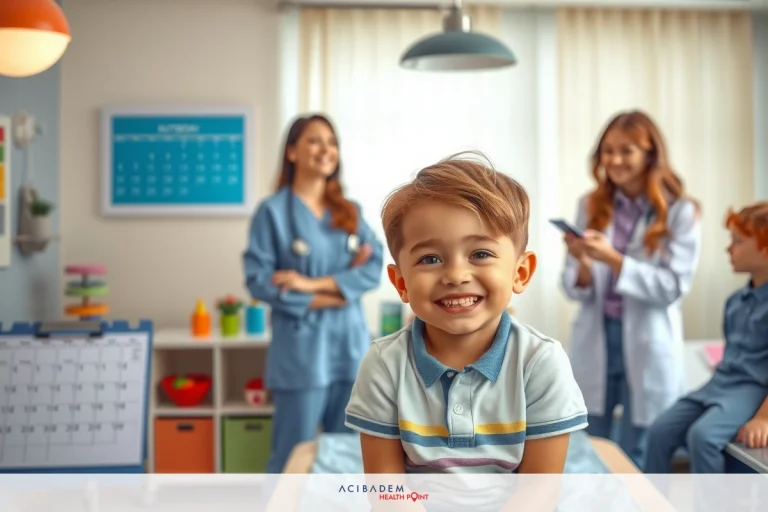What Specialized Care Is Required For Pediatric Appendix Cancer Patients?
What Specialized Care Is Required For Pediatric Appendix Cancer Patients? Pediatric appendix cancer patients need care that meets their unique needs. Doctors and nurses work hard to give the best help possible. Kids with this illness often spend a lot of time in hospitals so making them feel at home is important. Special diets and fun activities can make treatment easier for these young ones. Families also get support to help them through tough times.Caring for children with appendix cancer involves many experts working together. Nurses offer comfort while dietitians plan healthy meals for the kids. Social workers are there to listen and provide helpful advice to families in need. New treatments are always being studied to find even better ways to help these young patients heal.
Each child fighting appendix cancer has their own story and needs special attention from everyone around them. Schools may change schedules or homework loads to fit each kid’s energy levels during treatment periods. Friends can visit when it’s okay with doctors which brings joy into the little one’s day-to-day life amidst medical routines.
Diagnosis and Treatment
Diagnosis of appendix cancer in pediatric patients can be a complex process. Symptoms may be similar to other common childhood illnesses which makes careful examination crucial. Doctors use tests like ultrasounds, CT scans, or MRIs to find the cancer. Sometimes blood tests help too. After diagnosis the child and family meet with doctors to plan treatment.
Treatment often starts with surgery for children with appendix cancer. Surgeons work to remove all of the cancer from the child’s body. This step is important for their overall health and recovery journey. Depending on how advanced the cancer is additional treatments like chemotherapy might be needed. What Specialized Care Is Required For Pediatric Appendix Cancer Patients?
Specialized care during treatment ensures that pediatric patients stay as comfortable as possible. Hospitals have teams that focus only on kids with illnesses like appendix cancer. They know how to give treatments so they are easier on young bodies.
Pediatric patients need support after their initial treatment too. Follow-up visits monitor if the cancer comes back or spreads elsewhere in their body. These regular checks are key parts of keeping kids healthy long-term after dealing with appendix cancer.
Supportive Care
Supportive care plays a vital role in the healing process for pediatric patients with appendix cancer. It includes pain management, emotional support, and help with side effects from other treatments. Specialized care teams make sure each child’s physical comfort is taken into account during their treatment journey. Child life specialists provide activities that are fun and can distract from hospital routines.
Emotional support is also critical for these young patients as they face challenges related to their illness. Psychologists work closely with kids to help them understand what’s happening in ways they can grasp. Family counseling may be offered because everyone feels the impact when a child is sick. This type of care helps families cope together.
Navigating daily life during treatment requires additional resources that hospitals often provide to pediatric

patients and their families. Social workers assist with educational needs and coordinate home health services
if needed. They ensure that children keep up with schoolwork while receiving medical care.
Finally nutritional advice tailored to individual needs supports recovery and growth in pediatric patients fighting appendix cancer. Dietitians create meal plans that meet the unique requirements of children under treatment for this disease. These plans make sure kids get all the nutrients they need while possibly dealing with appetite changes due to medications or procedures.
Follow-Up Care
Follow-up care is a key part of recovery for pediatric patients who have been treated for appendix cancer. After the main treatment ends regular check-ups help keep track of the child’s health. Doctors look for signs that the cancer has not returned and ensure that recovery is on course. These visits may include scans or other tests as needed. They are spaced out over time but become less frequent if no issues arise. What Specialized Care Is Required For Pediatric Appendix Cancer Patients?
During follow-up appointments doctors also watch for any late effects of treatment on growing bodies. Special attention is given to how previous treatments might affect growth and development in kids. If problems are found doctors work with families to manage them early on. This helps prevent bigger issues down the road.
What Specialized Care Is Required For Pediatric Appendix Cancer Patients? Pediatric patients receive support during these follow-up periods as well through specialized care programs tailored just for them. Nurses or other team members might teach exercises or activities to improve strength and well-being after treatment. It’s all about helping children get back to their daily lives while ensuring they stay healthy long term after battling appendix cancer.
Nutritional Needs
Meeting the nutritional needs of pediatric patients during appendix cancer treatment is crucial. Proper nutrition helps these young bodies to cope with the stress of illness and therapy. Dietitians assess each child’s dietary requirements to support their immune system and energy levels. They also work to manage any side effects that treatments may cause such as nausea or loss of appetite.
Children undergoing cancer treatment often need more calories and protein than usual. High-calorie foods that are easy on the stomach can help maintain weight and strength. Protein-rich foods aid in healing tissues affected by surgery or other treatments for appendix cancer. Specialized care teams monitor intake to ensure kids get what they need.
Some treatments might make it hard for children to eat regular food comfortably or safely. In such cases alternative feeding methods like supplements or tube feeding may be considered. The goal is always to make sure pediatric patients receive enough nutrients no matter what.
Hydration is another important aspect of a child’s nutritional care plan while undergoing treatment for appendix cancer. Kids need plenty of fluids to stay hydrated especially if they experience vomiting or diarrhea from chemotherapy sessions. Caregivers provide guidelines on how much fluid intake is required each day. What Specialized Care Is Required For Pediatric Appendix Cancer Patients?
What Specialized Care Is Required For Pediatric Appendix Cancer Patients? Individual plans may change over time as a child’s condition evolves during treatment for appendix cancer in pediatric patients. Regular reviews allow dietitians to adjust meal plans according to recovery progress or new challenges that arise. It’s all about personalized care tailored specifically for each young patient’s unique situation.
Resources and Support
Resources are abundant for pediatric patients with appendix cancer and their families. Hospitals often have dedicated teams to guide them through the treatment process. These teams help find support groups,
educational materials, and financial aid programs. They work hard to ensure that families have access to all available resources. This can greatly reduce stress during a difficult time.
Support groups play an essential role in providing emotional comfort to both patients and caregivers. Sharing experiences with others facing similar challenges offers a sense of community. It allows children and parents to feel less alone on their journey through illness and recovery. Hospitals or local organizations usually run these groups regularly.
What Specialized Care Is Required For Pediatric Appendix Cancer Patients? Educational resources help families understand more about pediatric appendix cancer. Knowing what’s happening can make the situation less scary for everyone involved. Nurses or patient educators often provide information tailored specifically for each family’s needs.
Financial support is also critical as treatments can be costly over time. Many hospitals have social workers who specialize in helping families navigate insurance questions. They assist in exploring options like grants from charities if needed.
Lastly specialized care includes psychological counseling services to address mental health needs during this tough period. Pediatric psychologists are trained to offer strategies that cope with anxiety or depression related to illness or treatment side effects. This holistic approach ensures care extends beyond just physical health for young patients battling appendix cancer.
Frequently Asked Questions
Q: What are common signs of appendix cancer in children?
Common signs include stomach pain, bloating, and changes in bowel habits. If you notice these symptoms see a doctor.
Q: How is appendix cancer in pediatric patients treated?
Treatment usually involves surgery to remove the tumor. Sometimes chemotherapy may be necessary as well.
Q: Can pediatric patients with appendix cancer go to school during treatment?
Many can attend school but it depends on their health and treatment schedule. Talk with your care team for advice.









